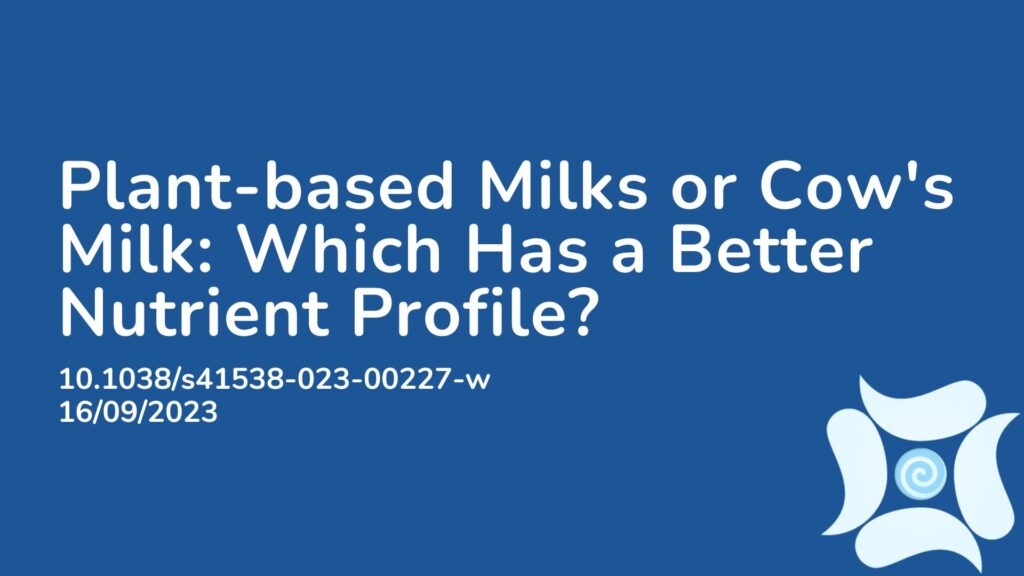Summary:
Dairy products play a significant role in providing essential nutrients. These products are recommended in dietary guidelines due to their rich content of vital nutrients such as minerals, fatty acids, and proteins. In fact, dairy contributes substantially to global calcium intake (49%), dietary fat (15%), and protein (12%). Despite its nutritional significance, the consumption of animal milk has reduced globally as it has been replaced with plant-based beverages, often marketed as healthier alternatives. Non-dairy alternatives are on the rise due to lactose intolerance, milk protein allergies, the rise of veganism, concern for animal welfare, and perceived health benefits. In order to address common micronutrient deficiencies associated with vegan and vegetarian diets and to be considered viable substitutes for cow’s milk, many plant-based beverages are fortified with additional minerals and vitamins. This study aimed to assess and compare the amino acids, fatty acids, and minerals in various plant-based beverages and animal milk. Almond, oat, rice, coconut, and soy-based beverages were used. The findings revealed that these plant-based beverages generally contained lower levels of total protein, lipids, amino acids, and minerals when compared to cow and goat milk. However, there was an exception with soy-based beverages, which closely matched the protein content, amino acid composition, and exhibited high mineral content similar to that of animal milk. The study also revealed that there were anti-nutrients present in plant-based beverages, which are compounds that can block the absorption of minerals.
Abstract:
The decline in fresh milk in the Western world has in part been substituted by an increased consumption of plant-based beverages (PBB). These are often marketed as healthy and sustainable alternatives to milk and dairy foodstuff, although studies have suggested PBB to be of lower nutrient quality. The current study considered different brands of almond-, oat-, rice-, coconut- and soya-based beverages for a comparative analysis and found that they indeed presented lower contents of total protein, lipids, amino acids, and minerals than cow and goat milk. The only exception was given by soya-based beverages which approximated the protein content (3.47% vs. 3.42 and 3.25% in cow and goat milk, respectively) and amino acid composition of animal milk, and also demonstrated high mineral content. The natural presence of phyto-compounds in PBB characterised as antinutrients and their potential to exacerbate the issue of low nutrient quality by lowering bioavailability have been discussed.
Article Publication Date: 16/09/2023
DOI: 10.1038/s41538-023-00227-w



